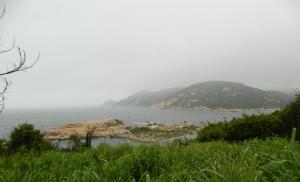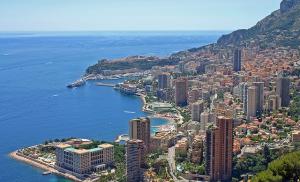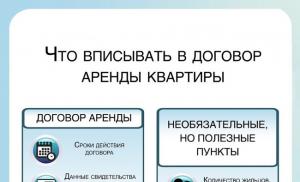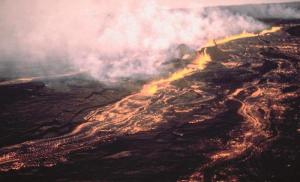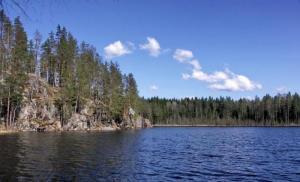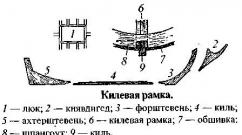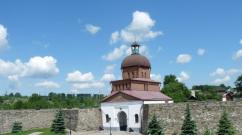England history of the country for children. England - interesting information about the country
Despite its conservatism, Great Britain is extremely interesting country with a rich history. It includes countries such as England, Wales, Northern Ireland and Scotland. England occupies most of the territory. The busiest cities in England are considered to be Manchester, Newcastle and Birmingham. Each of these cities has its own attractions, so there has never been a shortage of tourists here.

Educational institutions of Oxford and Cambridge are considered the most popular among students. Getting an education at one of these universities is considered prestigious. There is an opinion that the British are somewhat prim people, but this is not entirely true. The British are very polite and calm people. Punctuality and modesty are another distinctive feature of the Englishman.
The official language of Great Britain is English. Despite the fact that the Catholic religion predominates in Great Britain, there are many other religions here: many Muslims, Jews, Hindus and Baptists.
Road traffic in the UK drives on the left, and the least expensive way to travel around the country is by intercity bus. Residents of the country use a voltage of 240 volts. To use the usual equipment, you will have to use a special adapter.
The most inexpensive type of telephone service is a pay phone, which is used using telephone cards, or coins, with a face value of 10 pence. In local stores you can often get some goods on sale.
Great Britain is widely known for its abundance of different museums. The largest number of them are located in London, the capital of Great Britain. When visiting London museums, it is better to use the services of a guide. You can distinguish him by the presence of a special blue badge on his jacket.
The climate of Great Britain is predominantly humid and it often rains. When visiting this country, it is recommended to have an umbrella, waterproof shoes, a jacket or raincoat.

In the UK, it is customary to leave a tip for service in restaurants and cafes. On average, the tip amount is about 10-15% of the order amount. For taxi services, the tip is 10% of the meter reading. It is not customary to leave a tip at the theater or at a gas station.
You can take a break from the bustle of the city in the incredibly picturesque countryside. Vast pastures, magnificent forested valleys, slow rivers and coastlines will not leave anyone indifferent.
You will rarely meet a person on earth who has not heard anything about England. Every self-respecting tourist should visit this state to fall in love with its rich history and become imbued with its traditions. Today you have the opportunity to learn about rare facts in England.
1. In Britain, pigs are not castrated, so it is better not to buy pork or order it in restaurants, but if the smell and taste of boar urine in meat is normal to you, then you can. The British really love bacon for breakfast, and in the morning a specific stench emanates from the food. I once tried to talk to supermarket managers, I thought maybe there was some kind of identification system on the packages, but they didn’t even understand what I was talking about and why they castrate pigs. But there is a lot of halal meat, I am surprised that none of the green and other eco-animal lovers almost protests against it, because the slaughter of animals according to Muslim traditions is very cruel.
2. England has almost none of its own national cuisine, or rather, it seems to exist, but it is quite primitive and, frankly speaking, tasteless. Probably the worst in Europe. I’ll write more about English cuisine
3. England has the highest obesity rate in Europe
4. The British really drink a lot of tea, a cup of tea is such a ritual in the culture of communication, and a panacea for all ills. It’s a paradox, but good loose tea is rare in large supermarkets; you have to order it in special stores. Everyone drinks packaged.
5. School uniform is mandatory for all schoolchildren. In most state schools it is the same, but private schools adhere to different
6. Public school is actually a private school, and free is a state school. Students refers to all students, both schoolchildren and university students. The word pupil in the meaning of “schoolboy” is practically not used. The word school can also mean university, such as law school or medical school
7. Parents may be subject to criminal liability for schoolchildren's absenteeism.
8. Children go to school from the age of five and compulsory education lasts until the age of 16. To enter university, you still need to study for an additional year or two
9. Corporal punishment in state schools was abolished only in 1987. In private schools - in 1999. In Scotland and Ireland even later.
10. A private elite school is actually a boarding school. A very tough establishment.
11. There is no more rainfall in London than in Moscow, or even less. And fogs are rare here. However, rain can come suddenly, but usually does not last long. Rain for the whole day is quite rare. If the weather forecast predicts rain, then it will always fall from one to two in the afternoon or from 5 to 7 in the evening, exactly at the time when it is lunch break, or when you have to go home from work. The law of meanness works constantly
12. In England it rarely snows in winter. If one centimeter of snow falls, then this is a whole event. Cities stand still, transport does not work, planes do not fly, everyone is running to make shabby snowmen and ride down the slides on inflatable mattresses. Utilities almost don’t keep snow removal equipment, apparently it’s cheaper to suffer multimillion-dollar losses every year than to maintain the equipment....what will they do if the Germans attack
13. The British are seasoned from childhood. It is not customary to wrap children up from head to toe, and it is generally not customary to dress according to the season. The climate is quite mild, but because of the humidity, zero temperatures in winter seem like everything is minus 10 in Russia. In winter, you can see people wearing only T-shirts or ballet shoes on bare feet. Everyone saves on heating, so whether you like it or not, they will be hardened like steel from childhood.
14. The British love animals very much. You will not see stray cats and dogs on the streets. This issue was resolved a long time ago.
15. The Society for the Protection of Animals from Cruelty was created in England back in 1824 and has royal status. What is characteristic is that the society for the protection of children was founded only 60 years later and has national status, which is no longer so prestigious.
16. But at the same time, traditional fox hunting still takes place in England. The British love their traditions more than animals.
17. Although you may encounter stray animals, especially at night, they will be unfortunate foxes. Even in central London you can see them very often. They flash their green eyes and dash into the bushes. Sometimes they jump right out from under the wheels of a bicycle late on a dark evening; such suddenness and convulsions won’t last long. They live in parks, of which there are a huge number throughout London. They often get into houses and can be quite dangerous. At night, foxes make very specific screams, as if they are cutting a baby.
18. Household pests include bedbugs and mice. There are no cockroaches, and there are no mosquitoes either. You can also easily run into a false black widow. This is such a spider that can be dangerous and poisonous if it bites.
19. There are huge numbers of squirrels in the parks; they are all almost tame. The squirrels are all gray and quite plump, I would even say muscular. Once upon a time there were red squirrels, but gray squirrels killed them; now red squirrels are protected by the state. There are swans and many different interesting birds. By the way, all Thames swans are legally the property of the Queen.
20. In parks you can often see benches with nameplates installed in memory of a deceased relative or friend. Sometimes captions are an example of purely English irony, as is the case in the photo. “In memory of the husband whom I dreamed of, but he was never found.”
25. Britain has a huge number of regional accents, dialects and dialects. Accents may differ within the boundaries of one city, and even more so within a county. English in former colonies is sometimes very different from British English, and not just in pronunciation.
26. The British feel a little guilty that almost everyone knows English, and the British themselves are not strong in foreign languages. Therefore, they will always praise a foreigner's English. Many Russian speakers immediately begin to show off, as if the English themselves noticed that I speak almost without an accent. This has little to do with reality. This is just a polite compliment to a foreigner's ability to string words into sentences. In fact, I have almost never met Russian speakers who moved as adults and have excellent pronunciation... although no, Berezovsky’s first wife has excellent pronunciation
27. The Scots, Welsh and Irish are very proud of their roots and nationality. Don’t even think about calling an Irishman or a Scotsman an Englishman or even a Briton – they will be terribly offended.
28. In Britain there is no concept of provincialism in the Russian sense of the word. It's not considered cool here to be a native Londoner or a native Edinburgher. Historically, all the nobility lived on estates. In the big cities lived those who had to work; the need to work was always despised by the English nobility. But if you grew up in your own house with a lot of land, then yes, this is class. Certain regions are considered provincial here, for example, the north of England; historically, the Irish are considered rednecks, because the British essentially committed a mass genocide of the Irish, so the elite created a certain snobbish attitude towards them, which is still alive. New Zealanders who have arrived in large numbers are considered provincials
29. Britain has no constitution
30. Big Ben is actually the name of a bell, not a clock.
31. There is no concept of a courtyard here, because in urban development there is no city courtyard in the Russian sense; urban planning is planned differently. There is the concept of estate or neighbourhood, i.e. area.
32.V English cities everything is very compact, the streets and sidewalks are narrow, the houses and apartments are quite small. For example, there are standard houses with 4 rooms of only 56 square meters. I call these apartments and houses mittens.
33. All land is private. There is no concept of “giving up on barbecuing in nature”, because all of nature is divided into private areas, except protected areas and parks. There are designated camping areas that you have to pay for, and areas for barbecues and picnics.
34. There is no registration in Britain, but without a bank account and card you can do almost nothing here, much less live legally. Residence is determined by bills, which are paid through a bank account. All bills are proof that you have lived here and may be needed for various bureaucratic needs. Therefore, a resident of Britain keeps a lot of waste paper at home from paper utility bills, payslips and the like; I already have two hefty folders.
35. If Moscow never sleeps, then London sleeps and how, I would say, just sleeps. Pubs are open until 11, on weekends until a maximum of 2. There are no traces of 24-hour restaurants, just as there are no 24-hour coffee shops. There are only fast food eateries that are open at night on weekends, the so-called take-away, where people flock to refuel after energy-consuming club parties. There are just mountains of garbage in city centers on weekends.
36. By the way, chips in English are French fries, not chips, but crisps are just chips in bags
37. In broad daylight, in various places in London, you can see people smoking weed, and if you don’t see it, you can acutely feel it. Few people care or care about this. In fact, there are a huge number of quiet weed addicts here.
38. Some people believe that the British are entirely music lovers and certainly don’t listen to any cheap pop music. The percentage of music lovers here is the same as in Russia, and there are a lot of pop lovers here
39. The working class in Russia loves to vacation in Turkey and Egypt, and the working class in England really loves Spain and Eastern Europe. The British "Tagil" has a better holiday there than ours in Egypt.
40. The British constantly say sorry, sorry, thank you, please, even if it is not their fault. An Englishman will apologize if you accidentally step on his foot. Don't delude yourself and think that this is sincere. In fact, an Englishman will say sorry to the table if he accidentally touches it; these words are more of an interjection than a sincere apology.
Greetings, my dear readers.
I don’t know what and in what quantities we lose every year wandering around the city, but the British say goodbye to 800 umbrellas in the subway every year! Can you already imagine this dump of small cane umbrellas? I see them clearly)).
In this regard, today our topic is United Kingdom: interesting facts. You will learn only about the most interesting things, and at the end, for especially inquisitive minds, I will give you a mini-summary of everything said in English! If this is not enough, then you can additionally find out what this country is so famous for.
Of course, we know almost more about the country of origin of the English language than our own. But do you know the most interesting facts about her? Let’s check it now.
- If you manage to live to be 100 years old, expect a personal card from the Queen as a gift.
- In our country - and in neighboring countries too - there is a strict ban for children: drinking alcoholic beverages is only allowed from the age of 16, but in the UK it is officially allowed to do this at home from - attention! - 5 years!
- All horses, donkeys and ponies are required to have a passport. If you accidentally take your horse for a walk in the evening and you don't have proof, you will receive a fine of £5,000.
- You have to be very careful with the mail. Put a stamp with the image of an official upside down - that's it: you are a state traitor.
- Surprisingly, England has the highest rate of obesity in the world. True, there is a small note here - among European countries.
- Receiving a gold medal at the Olympics is an honor. But at the last Olympics, the gold medals consisted of 93% silver and only 1.3% gold.
- London is the capital. And that explains why 16% of the UK is there.
- The country's inhabitants are incredibly tolerant of the cold. If in November, while walking around the city, you see a man in a T-shirt, don’t be surprised, everything is fine.

- The cost of a taxi there is simply incredible. But you can stop the car like in any movie - anywhere and at any time simply by waving your hand.
- You can get from London to Paris by train in 2 hours. But at the same time, a significant part of the population has either been to Paris once or not at all.
- Everyone! With this slogan, I will reveal to you the fact that admission to all the main museums in the country is absolutely free. You just have to decide for yourself how much you want donate to the museum for its development.
- In the subway car, passengers leave the newspapers they read for the next readers. Thus, a newspaper passes through a hundred hands per day. What about us? We don't read newspapers!
- You will not see stray animals on city streets, and a black cat will never cross your path - they are all kept in specialized nurseries.
- very few sushi bars, but incredibly many Indian restaurants.

- Every weekend, homemade and farm food fairs open at many venues in the city. And after 13.00 - look for fistulas - you won’t find them anywhere.
- It is not customary to wash clothes at home. There are laundries in every area.
- From the life of an ordinary Englishman: after 9-10 pm you cannot go to the store - everything is already closed. I wonder how people who like to eat at night live?
- There are legends all over the world about the country's boarding houses. Surprisingly, children are required to study there for 13 years. After that, you either go to university or go to work.
- Fact about Christmas: the British try to spend this holiday with their family. But New Year It is not a particularly important event for them.
- Snow in England is an event. If even 1 centimeter of snow falls in the morning, the whole city stands still: transport does not run, planes do not fly - nothing can work properly!

ABOUT royal family England exists more facts than about any other family in the world. For example:
- The law establishes that the monarch is the owner of all whales and dolphins in the country's coastal waters. Well, isn't it a strange law?
- Princess Diana worked as a kindergarten teacher and laundress.
- History Fact: She took courses and worked as a driver in World War II.
- By the way, about the queen: the actual and state dates of birth of the monarch are different. Elizabeth celebrates her birthday on April 21, but the whole country celebrates it in early June.

I think I promised you some tips in English? Well, here you go:
Great Britain is the country we know almost everything about. But there are some facts we don’t know. For example: if you are 100 years old you will get a personal post-card from the Queen. You can travel from the center of London to the center of Paris for 2 hours. There are no homeless cats or dogs on the streets. People in England don’t usually do the laundry themselves. There are lots of washing houses in the district. What about the Queen, the celebration of the Queen’s birthday takes place in June. Interesting fact is that the Queen was born on the 21st of April. The Queen used to work as a driver during the Second World War. The English people can bear any temperature: there are people walking on the streets in T-shirts in November. And the last but not the least: there are about 800 umbrellas lost in the underground every year.
Useful expressions:
to get a post-card from -get postcard from
to travel from place to place- travel from place to place
to do the laundry -wash things
to take place in June -happen V June
to bear the temperature -endure temperature
the last but not the least- last in order, but not least
Well, have you stocked up on new knowledge? I hope so. I am sure that for 3rd grade, whose students have to read about Great Britain more than once, these facts will be very useful, and for any adult, perhaps unexpected. Now, when you look at a photo of Great Britain, you will immediately remember these facts.
Do you want to learn even more interesting things? - subscribe to my blog newsletter.
And for today there is one more inevitable fact - I’m saying goodbye to you for a while;). Wait for the news!
Great Britain
The United Kingdom of Great Britain and Northern Ireland is located on the British Isles. The British Isles consist of two large islands, Great Britain and Ireland, and above five thousand small islands. Their total area is over 315,000 square kilometers. The United Kingdom is made up of four countries: England, Scotland, Wales and Northern Ireland. Their capitals are London, Edinburgh, Cardiff and Belfast respectively.
The British isles are separated from the European continent by the North Sea and the English Channel. The western coast of Great Britain is washed by the Atlantic Ocean and the Irish Sea. The surface of the British Isles varies very much. The north of Scotland is mountainous and is called Highlands, while the south, which has beautiful valleys and plains, is called Lowlands. The north and west of England are mountainous, but all the rest - east, center and southeast - is a vast plain. Mountains are not very high. Ben Nevis is the highest mountain. (1343 m.)
There are a lot of rivers in GB, but they are not very long. The Severn is the longest river, while the Thames is the deepest and the most important one.
The UK is one of the world's smallest countries. The population of the country is over 87 million and about 80% of it is urban. The UK is a highly developed industrial country. It’s known as one of the world’s largest producers and exporters of machinery, electronics, textile, aircraft and navigation equipment. The UK is constitutional monarchy. In law, the Head of State is the Queen, but in practice, the Queen reigns, but does not rule. The country is ruled by the elected government with the Prime Minister at the head. The British Parliament consists of two chambers: the House of Lords and the House of Commons.
There are three main political parties in Great Britain: the Labour, the Conservative and the Liberal parties. The Liberal party is the ruling party nowadays.
[ translation ]
United Kingdom
United Kingdom of Great Britain and Northern Ireland located in the British Isles. The British Isles are made up of two big islands, Great Britain and Ireland, and more than five thousand small islands. Their total area is more than 315,000 square kilometers. Great Britain consists of four countries: England, Scotland, Wales and Northern Ireland. Their capitals are London, Edinburgh, Cardiff and Belfast respectively.
The British Isles are separated from the European continent by the North Sea and the English Channel. West Coast Great Britain is washed by the Atlantic Ocean and the Irish Sea. The surface of the British Isles is very diverse. The north of Scotland is mountainous and is called the Highlands, while the south, which contains beautiful valleys and plains, is called the Lowlands. The north and west of England are mountainous, but the rest - east, center and south-east - is vast plains. The mountains are not very high. Ben Nevis is the most high mountain. (1343 m)
There are many rivers in Great Britain, but they are not very long. The Severn is the longest river, while the Thames is the deepest and most important.
Great Britain is one of the smallest countries in the world. The country's population is more than 87 million people and approximately 80% of them live in cities. Great Britain is a highly industrialized country. It is known as one of the world's largest manufacturers and exporters of machinery, electronics, textiles, aircraft and navigation equipment. Great Britain is a constitutional monarchy. By law, the head of state is the Queen, but in practice, the Queen rules but does not govern. The country is governed by an elected government headed by a prime minister. The British Parliament consists of two houses: the House of Lords and the House of Commons.
][ ]
England is the largest and the richest country of Great Britain. The capital of England is London but there are other large industrial cities, such as Birmingham, Liverpool, Manchester and other famous and interesting cities such as York, Chester, Oxford and Cambridge. Stonehenge is one of the most famous prehistoric places in the world. This ancient circle of stones stands in Southwest England. It measures 80 meters across and made with massive blocks of stone up to four meters high. Why it was built is a mystery.
Not far from Stonehenge stands Salisbury Cathedral. It is a splendid example of an English Gothic Cathedral; inside there is one of four copies of Magna Charta and the oldest clock in England. Chester is very important town in the north-west of England. In the past it was used to be a Roman fort; its name comes from the Latin word castra, meaning "fortified camp". In Chester there is a famous museum which contains over 5000 ancient and modern toys.
Oxford is the home of the oldest university of England. The most famous college is Christ Church. It has a great hall which was built during the reign of Henry VIII and its chapel has become the Cathedral of Oxford. Cambridge is the home of Britain's second oldest university. York was the capital of Northern England. It is one of the best preserved medieval cities of Europe. It was built by Romans, conquered by Anglo-Saxons and ruled by the Vikings. Birmingham is often called the "City of 1,500 trades" because of the great variety of its industries.
Text translation: England - England
England is the largest and most rich country Great Britain. The capital of England is London; but there are other important cities, such as Birmingham, Liverpool and Manchester and other famous and interesting cities such as York, Chester, Oxford and Cambridge. Stonehenge is one of the most famous prehistoric sites in the world. This is an ancient circle of stones located in the southeast of England. Its diameter is 30 meters, and it is made of massive stone blocks up to four meters high. Why it was built is a mystery.
Not far from Stonehenge stands Salisbury Cathedral. This is a fine example of an English Gothic cathedral; it contains one of the four copies of the Magna Carta and England's oldest clock. Chester - very important city in the north-west of England. In the past it was a Roman fort; its name comes from the Latin word "castra", which means "fortified camp". Chester is home to a famous museum containing more than 5,000 ancient and modern toys.
Oxford is home to England's oldest university. The most famous college is Christ Church. It retains a hall built during the reign of Henry VIII, and its chapel became Oxford Cathedral. Cambridge is home to the second oldest British university. York was the capital of Northern England. Now it is one of the best preserved medieval cities in Europe. It was built by the Romans, conquered by the Anglo-Saxons and ruled by the Vikings. Birmingham is often called the "City of 1,500 Crafts" due to its large quantities industries.
Used literature:
1. 100 topics of English oral (Kaverina V., Boyko V., Zhidkikh N.) 2002
2. English language for schoolchildren and those entering universities. Oral examination. Topics. Texts for reading. Exam questions. (Tsvetkova I.V., Klepalchenko I.A., Myltseva N.A.)
3. English, 120 Topics. English language, 120 conversation topics. (Sergeev S.P.)

